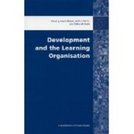Sort by: Author | Title | Publication Year
BOOKS
Development and Humanitarianism: Practical IssuesDeborah Eade and Tony Vaux, editors Humanitarian intervention invariably rubs shoulders with politics—awkwardly, and sometimes with tragic results. Development and Humanitarianism draws from the contents of the acclaimed journal Development in Practice to address the dilemmas that aid agencies and their frontline staff face in interpreting the principles of humanitarianism in situations where they risk being manipulated More > |  |
Development and Management: Experiences in Value-Based ConflictDeborah Eade, Tom Hewitt and Hazel Johnson, editors Complete book information to come. More > |  |
Development and the Learning OrganisationLaura Roper, Jethro Pettit, and Deborah Eade, editors As development NGOs and aid agencies embrace the idea of "becoming a learning organization," they are increasingly concerned with issues of knowledge generation. This collection, drawn from the contents of the acclaimed journal Development in Practice, presents the work of development scholars and practitioners from a range of institutional backgrounds, some introducing new More > |  |
Development and the Private Sector: Consuming InterestsDeborah Eade and John Sayer, editors Presenting both analytical chapters and case studies ranging from El Salvador, to Kenya, to Timor-Leste, the authors of Development and the Private Sector explore how the private sector can do less harm, and even do considerable good, by fostering equitable development.
More > |  |
Development and Underdevelopment: The Political Economy of Global Inequality, 5th editionMitchell A. Seligson and John T Passé-Smith, editors The fifth edition of this classic reader retains many of the articles that have made the book a must-assign for classes on development and political economy, but has been updated with 14 new chapters that look even more deeply at long-term factors that help to explain the origins and current trends in the gap between rich and poor. An entirely new section focuses on natural resource and More > |  |
Development Brokers and Translators: The Ethnography of Aid and AgenciesDavid Lewis and David Mosse, editors The contributors to Development Brokers and Translators, all anthropologists with practical experience in development work, show how ethnography can be an indispensable tool for understanding the complex and dynamic relationships among communities, ideas, resources, and development agencies. More > |  |
Development Challenges Confronting PakistanAnita M. Weiss and Saba Gul Khattak, editors Although scholars and practitioners have identified explicit structural impediments that constrain countries' efforts to alleviate poverty and promote sustainable social development, there has been limited research conducted to identify the specific barriers to development that prevail in Pakistan today. The authors of Development Challenges Confronting Pakistan go far toward filling this More > |  |
Development Methods and Approaches: Critical ReflectionsDeborah Eade, editor Many aid agencies advocate approaches to development that are people-centered, participatory, empowering, and gender-fair. This volume explores the middle ground between such values-based approaches and the methods and techniques that the agencies adopt. Contributors argue that tools and methods will contribute to a values-based approach only if those using them have a serious commitment to a More > |  |
Development NGOs and Labor Unions: Terms of EngagementDeborah Eade and Alan Leather, editors While NGOs and unions will naturally pursue diverse strategies and tactics, neither sector can afford to go it alone. The authors of Development NGOs and Labor Unions elucidate some of the underlying tensions between the two and illustrate the scope for constructive dialogue—and potential partnership—between them.
More > |  |
Development with WomenDeborah Eade, editor Drawn from the contents of the acclaimed journal Development in Practice, this book explores such issues such as "mainstreaming" versus specialization, methodologies for incorporating gender analysis into planning and evaluation, the limitations of gender training, the unintended impacts of women-focused credit programs, and how institutional policies to promote gender equity are often More > |  |



